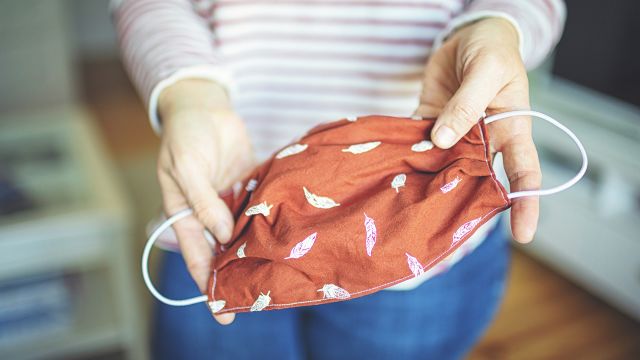Healthcare agencies across the world continue to advocate for people to wear face masks to help slow the spread of COVID-19 and lower the risk of becoming infected with COVID-19. Masks are also mandatory when going out in public in many states. Many businesses also require customers to wear masks.
People with psoriasis are strongly advised to follow these guidelines and wear a mask. Unfortunately, masks may irritate the skin, which can trigger or worsen psoriasis symptoms.
Below we look at some tips that might help minimize the impact wearing a mask has on psoriasis.
Talk to your healthcare provider
If psoriasis symptoms are currently not well controlled, if you have experienced new symptoms, or you’ve discontinued treatment, make an appointment and discuss these topics with your healthcare provider. An appointment is also a good time to discuss any concerns you have about psoriasis, psoriasis treatment, and COVID-19.
Tips for wearing a face mask
Any clothing that causes friction, irritation, or pressure against the skin can exacerbate psoriasis symptoms. This includes face masks.
Here are a few tips that may help you avoid skin irritation when wearing a mask:
- Choose a mask made from cotton or another natural, breathable fabric.
- Before putting on a mask, wash your face and apply moisturizer. Moisturizer can form a protective barrier between your skin and the mask.
- If lips become chapped when wearing a mask, apply a balm to your lips before putting on a mask.
- Wash masks regularly. Follow the instructions that came with the mask and wash on the warmest setting appropriate for the mask. Use gentle detergents that you would use for other clothing.
- Stick to using skincare products and detergents that have worked well for you in the past and do not irritate your skin.
- Make sure masks fit firmly, but not so tight that the mask bruises the skin.
There are many different masks available, including masks that fit differently and masks made of different materials. Finding a mask that works for you and your skin may take some trial and error. For example, if you find that a mask that attaches with ear loops aggravates the skin behind your ears, you may want to try a mask that attaches with a strap or ties that behind the head.




